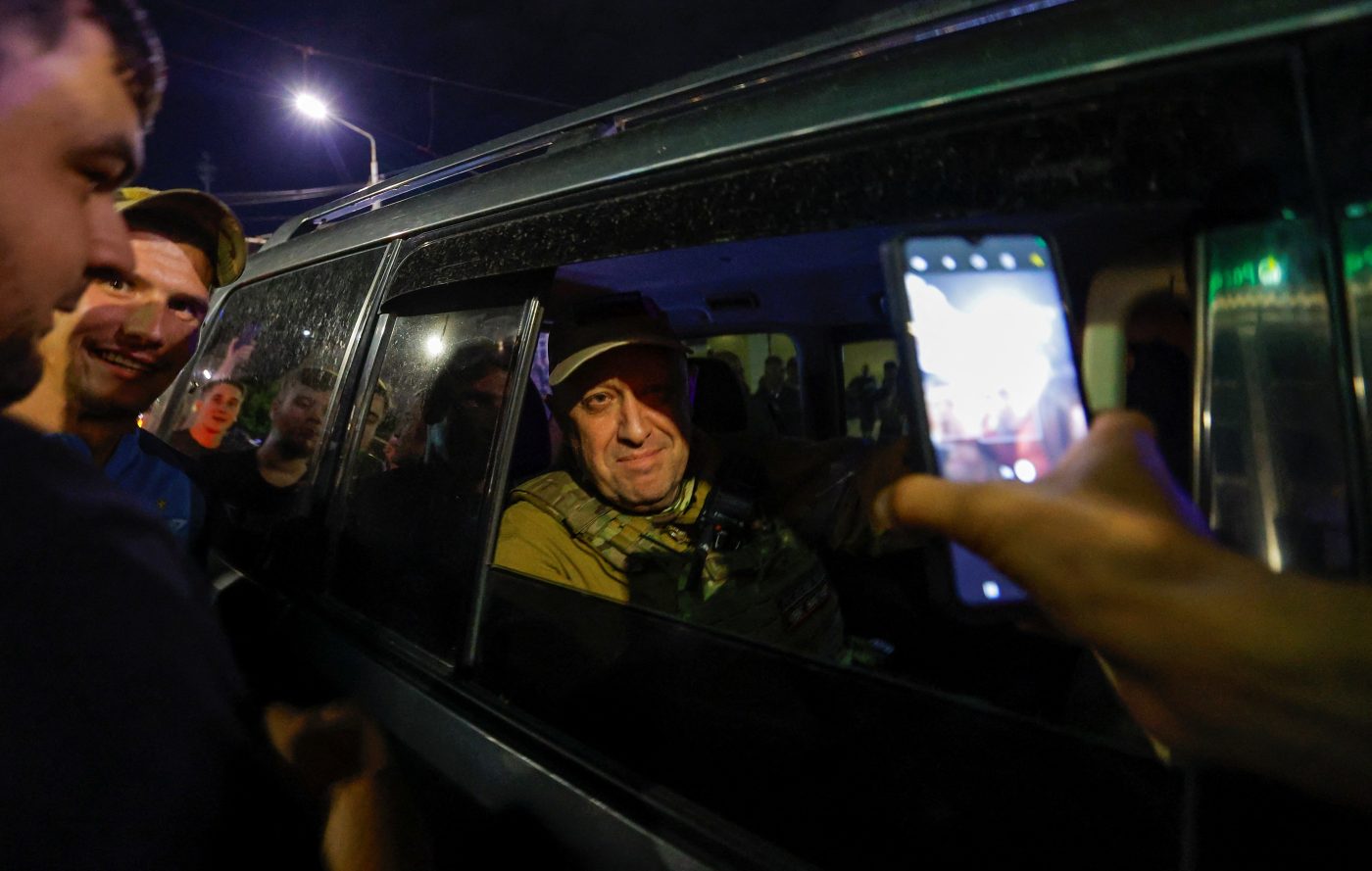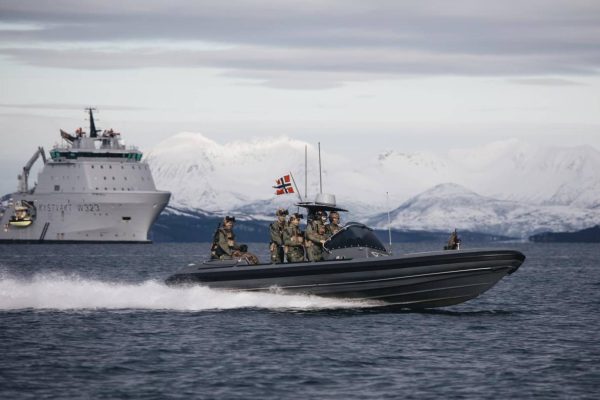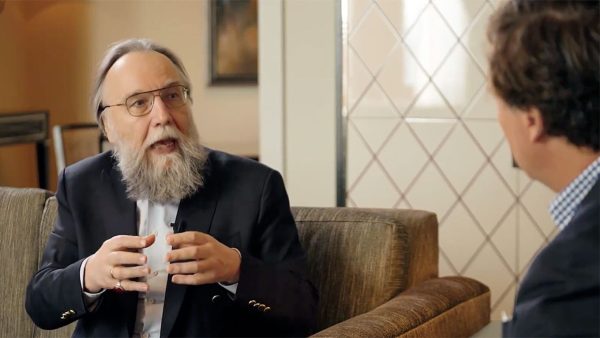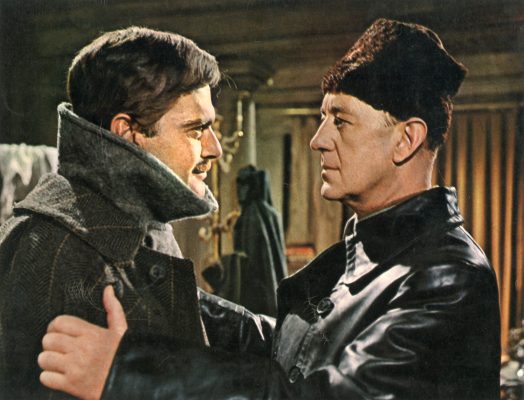There’s a phrase in Russian that the devil is not half as scary as the stories they tell about him. The same may turn out to be true of Evgeny Prigozhin, the mutinous mercenary whose short-lived insurrection failed to topple Vladimir Putin but laid bare the astounding precarity of Russia’s power structure.
Quite what Prigozhin thought he would achieve – and exactly how he thought he would achieve it – remains inscrutable, perhaps even to the mercenary leader himself. Even as his troops rumbled north towards Moscow, the most likely outcome for Russia’s most famous caterer seemed to oscillate between a jail cell and a pine box. Seen in that context, exile in Belarus seems cushy. But from the moment Wagner mercenaries occupied the Southern Military Command in Rostov-on-Don, this story ceased to be about Prigozhin and his aims, and became about Putin and the system of power he is trying to maintain.
However monocratic Putin may look from the outside, the reality has always been much more complex. Even now, Putin rules not fully alone and not fully on his own behalf. He relies on the compliance of an economic, bureaucratic, and security elite, and while fear and coercion play a role in procuring that compliance, a much larger role is played by positive incentives: Putin allows a small group of people to be wealthy, powerful and unaccountable to the law or public opinion. While the war and sanctions have increased Putin’s power and decreased the elite’s autonomy, the system still rests on the elite’s sense that Putin rules in their interest.
It was not a given that this sense of common interest would continue to unite Putin and the elite in the context of war and Russia’s violent separation from the West. A comparison of the 2023 and 2021 Forbes Russian billionaires lists shows that the war and its attendant consequences have wiped at least $103bn, or 15%, off of the collective wealth of Russia’s elite, and probably much more than that. But that figure masks some spectacular gains for people like the fertilizer fiefs Andrei Melnichenko, Vyacheslav Kantor, and Andrei Guryev.
The war economy has also poured money into metals and manufacturing, from the makers of industrial optics to socks, as well as the middlemen and logistics companies who profit from sanctions circumvention, research from the European Bank of Reconstruction and Development (EBRD) has shown. Whatever its deleterious effects, the war has created enough opportunity for enrichment to keep the Russian elite excited about their future and invested in Putin’s success.
On the face of it, the growing role of Prigozhin’s Wagner private military company and the emergence of other private armies, such as Gazprom’s Fakel, fit neatly into the pattern of rule that has characterized Putin’s 23 years in power: since everything the state does is an opportunity for kleptocratic enrichment, and thus a powerful incentive for the elite to remain loyal, why should the war be any different?
The events of June 23-25 provide the answer to that question – and that answer may be troubling to many in Russia’s rich and powerful. Everybody in the Russian system is used to cut-throat competition for money and influence, and most have memories long enough to recall the violence that often accompanied such struggles in the 1990s and into the 2000s, when “corporate raiding” was still conducted by thugs, rather than lawyers. Russia has never seen competing corporations armed with the kind of firepower that Wagner and the Ministry of Defense can bring to the field. As a result, when that kind of competition spins out of control, as it appears to have done on June 23-24, it threatens to plunge the entire country into chaos, a far cry from the localized flareups of the past.
To make matters worse, the object of the competition between Prigozhin and Defense Minister Sergei Shoigu – who are effectively sparring for control of Russia’s war in Ukraine – is of such fundamental importance to the Kremlin’s power that the mere fact of competition risks making it impossible for Putin to rule. When elites push and shove over who is in charge of an oil company, Putin can serve as a disinterested arbiter, picking winners and losers without too much regard for the systemic consequences. When it comes to the war, Putin has no such luxury: he cannot afford to be nonchalant about who is running the Ministry of Defense. If only for that reason, to say nothing of his constitutional authority, Prigozhin’s challenge went to the very heart of Putin’s power.
Prigozhin and Putin have given the Russian elite a glimpse of where the country is heading. Even if the immediate threat from Wagner has been seen off, the potential of armed insurrection is now an inescapable part of the landscape, which neither the Kremlin nor Russian elites can afford to ignore. This realization risks sparking an arms race both among competing Russian elites, and between elites and the Kremlin’s domestic security forces, and like all arms races, that fact alone will multiply the likelihood of violence.
Perhaps the more troubling realization, however, is that Putin cannot afford to play the game the way he has played it before. With competition hitting the heart of Russia’s power structure, Putin lacks the flexibility, maneuverability, and detachment that underpinned his rise, and that have kept the elite sated. Faced with a seemingly insoluble dilemma — admit that Prigozhin had him hemmed in, or risk turning him into a martyr — Putin froze. Belarusian dictator Aliaksandr Lukashenka will not be there to step in and mediate between disputing elites every time Putin goes AWOL. Unless the Russian leader can reassert control, elite conflict will grow increasingly chaotic and violent.
Prigozhin has brought the Russian elite face to face with the uncertainty of their future. The path they’re currently on leads to more violence and incalculable risks. The obvious alternative – for Putin to try to break the autonomy of the elite altogether and rely exclusively on coercion to gain compliance – is hardly a happier prospect. Either way, business-as-usual is no longer an option.
Sam Greene is Director for Democratic Resilience at the Center for European Policy Analysis (CEPA). Sam is also a Professor of Russian Politics at King’s College London.
Europe’s Edge is CEPA’s online journal covering critical topics on the foreign policy docket across Europe and North America. All opinions are those of the author and do not necessarily represent the position or views of the institutions they represent or the Center for European Policy Analysis.





